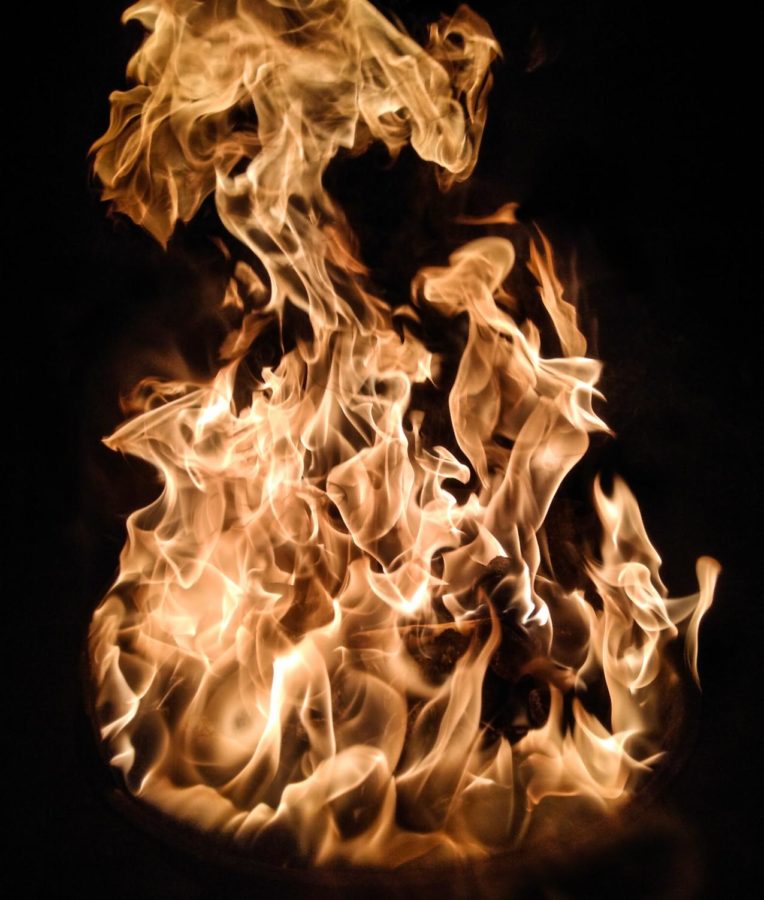Hamel: Hell on earth
May 21, 2021
I don’t believe death is something we as humans can comprehend. We have so many theories and religions that hypothesize post-passing activities that it seems impossible that only one, if at all, can be true.
I’ve been watching my grandmother’s conditions worsen over the last few months, and I’ve been wondering what would actually happen to her soul after she passes. This may be one of the greatest mysteries mankind comes to know.
Contemplating life after death is not a common tea time discussion. It’s mortifying to think about what happens after you die. We will never know the answer to that question because no one who dies comes back to relieve us from our worries.
Many Christians believe in a black-and-white after-death perspective: heaven and hell. Death is not the end of a life’s existence but a transition to either heaven or hell. If you are “saved” from your sins and have confessed them to Jesus, you may pass on to heaven. If not, your sins bury you to hell. Cloud paradise or blazing eternal fire. This is by no means a bad idea, it’s just one of many realities — or theories, based on your own beliefs — in our world.
Buddhism and Hinduism seem to have more comforting perspectives on life after death. Death is a natural cycle of life. This life cycle is called “samsara.” After death, one’s spirit will be reborn into another body. This may be an endless cycle for a soul, or the cycle may end when a soul reaches “nirvana” (also known as enlightenment). Nirvana may be achieved through producing a substantial amount of “good karma.” Once achieved, they will not reincarnate but will see the world as it is.
Agnostics do not deny a god or life after death, but they also don’t accept it. Atheists believe there are no gods or lives after death.
(Note: These are based off of general beliefs and are subject to change by branch or individuals. I am by no means purposely trying to disrespect someone’s religious belief.)
Say that I believed in hell. I would believe the real hell, the blazing fiery hell, is on earth.
My grandmother has reached a point in her health where she is afraid to move because of pain or doubt in her ability to move at all. She has a rigid routine. Pills in the morning. Pills in the afternoon. Pills at night. A lot of crying and, I’m certain, a lot of screaming I will never hear. Her life isn’t hers, and she will never be able to change anything about it. She doesn’t decide when to go to the bathroom, and she doesn’t decide when to go to bed.
This is hell on earth. Imagine you’re living in a body that doesn’t feel like yours. You’re watching through a body’s eyes and feel all of the body’s feelings. And you can’t move.
What might be worse is watching your loved ones keep you alive when you don’t want to be alive. Even more so, watching your loved ones watch you be in pain.
I don’t want to believe that after death there is a black dead end. Only silence and sightlessness.
I also don’t want to believe that hell could be a possibility. What if it were me? My grandmother is a lovely woman, but no one truly knows who gets sent where. There is a lot of uncertainty.
It is comforting that a life may continue and watch over other lives, but how long does that cycle last? How many times would I make mistakes and how much would that set me backward?
We don’t discuss the events of life after death because it truly is mortifying. Maybe that’s why we have so many hypotheses and theories. We find ways to comfort ourselves when there are no explanations.
The only thing we know for certain is that death is inevitable. And we will never know what happens after. It just is.

















